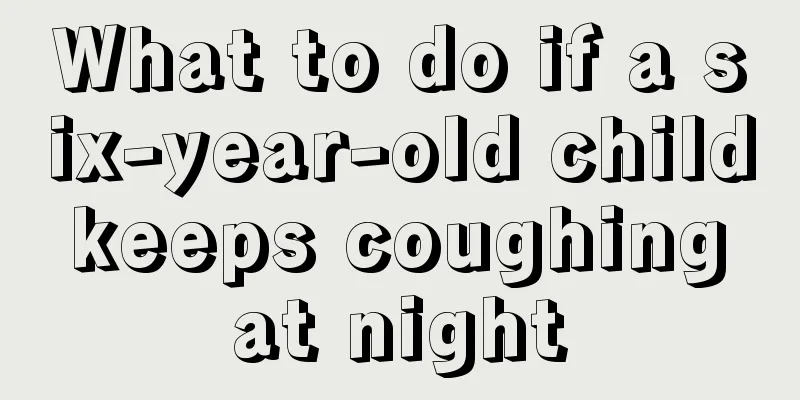What to do if your three-year-old baby has a bleeding nose

|
When the climate is relatively dry, many parents will find that their babies have nosebleeds. However, this always makes parents particularly worried, because long-term nosebleeds can cause malnutrition and even anemia in babies, which is also particularly detrimental to the baby's growth. If such symptoms occur, we must find a way to help the baby completely alleviate this symptom. Let’s take a look at what to do if a three-year-old baby has a nosebleed? Common factors that trigger nosebleeds include: 1. The climate is dry. The nasal mucosa likes moisture and dislikes dryness. No matter in the clear and cool autumn season or in the cold twelfth lunar month, as long as the indoor and outdoor climate is dry, nose bleeding is prone to occur. 2. Fever. When you have a fever, your heart rate speeds up, your blood flows faster, and your small blood vessels expand. In addition, when you have a fever, you drink less water and sweat more, which can easily cause nose bleeding when your mouth is dry. 3. Trauma. Picking your nose with your hands can damage the nasal mucosa and cause blood vessels to rupture; nasal trauma such as falls or bumps; foreign objects in the nasal cavity; or sometimes external forces such as coughing, sneezing, and blowing your nose hard can damage the nasal mucosa and cause nose bleeding. Therefore, nose bleeding should be prevented by targeting the underlying cause. What to do if your three-year-old baby has nose bleeding 1. First, stay calm, and immediately use your thumb and index finger to pinch the nostrils on both sides towards the nasal septum and apply pressure to stop the bleeding. 2. Tilt your head forward, face downward and breathe with your mouth open, or lie down and elevate your head. Never raise your head, as this will cause you to swallow the blood. If you spit out too much blood, it may be mistaken for vomiting blood. 3. Soak a towel in cold water and apply it to the base of the nose to cause the blood vessels to contract and stop the bleeding. 4. Use sterilized cotton, gauze or toilet paper to block the bleeding area and press on the ruptured blood vessels to stop the bleeding. If the bleeding still does not stop after blockage, or blood comes out of the mouth through the throat, you should go to the hospital's otolaryngology emergency department immediately and do not delay. In addition, it should be noted that frequent nose bleeding may be a local problem of the nose, or it may be a manifestation of a certain disease. Therefore, students who often have nose bleeding should go to the hospital for further examination to avoid delaying the disease. The above is an introduction to what to do if your three-year-old baby has nose bleeding. After understanding it, when you encounter this symptom, you must help your baby stop the nose bleeding in time. In addition, you must ensure that the air in the baby's environment is not too dry. Pay attention to the nutritional balance of your baby's diet. If nosebleeds occur frequently, you should consult a doctor in time. |
<<: What to do if your four-month-old baby has a cold and stuffy nose
>>: What causes yellow skin in babies?
Recommend
How many times a day is normal for a newborn baby to poop?
Newborns begin to slowly adapt to the external en...
What to do when blisters appear on children's feet
I believe everyone is familiar with the symptom o...
What causes baby rash?
Compared with adults, babies' skin is much mo...
What are the dangers of adenoids hypertrophy in 3-year-old babies?
Adenoids are one of the important parts of the hu...
Children's tongue coating is white and they cough and have phlegm
Children's coughs are very worrying for paren...
Two and a half year old baby wets the bed at night
It is not uncommon for a two-and-a-half-year-old ...
What to do if baby has bald patch
Every change in the baby is a surprise in the eye...
What foods cause precocious puberty in children?
Some cases of precocious puberty are not simply c...
What should I do if my child has a sore throat and fever?
Children will have various minor illnesses when t...
What's wrong with my child's green poop?
A child’s health condition often does not manifes...
How to calculate the amount of milk powder for babies
As the baby continues to develop, it is necessary...
How many months does the baby crawl?
In fact, mothers are very worried about their chi...
Prevent myopia in children and pay attention to eye use
In recent years, the phenomenon of myopia among c...
Can children eat bird's nest?
I believe that many friends will not feel unfamil...
What should I do if my child has a lot of eye mucus when sleeping?
As children grow up, parents will certainly caref...









